Additional Resources
Explore the following blogs and videos for more information on Ecological Gardening and conservation work at Tyler Arboretum. You can also visit our Pollinator Preserve page to learn more about pollinators and other insects.

Climate Researchers Come to Tyler
by Dave Charlton
Sometimes it’s the most unlikely organisms that can reveal the effects of climate change on our natural environment. Over the summer, Tyler hosted a duo of researchers in our woodland who were looking for just such an organism, in this case, a microscopic one. Read more here!
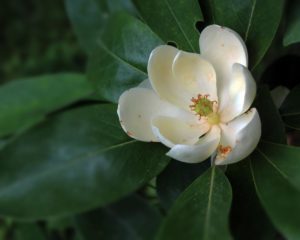
Trees with High Ecological Value
By Dave Charlton
Most trees you can grow at home will provide ecological value, but some more than others, particularly if they are native to your area. Beyond carbon fixing, air purification, water regulation, and temperature control, native trees are additionally beneficial to insects, birds and mammals. Read more here!
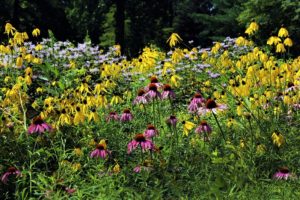
Wellness for Nature – Wellness for All
By Bess Trout
We talked recently in the blog post “Community Conversations around Nature,” by Dr. Laura Guertin about how nature as a concept decreased in online conversation following the beginning of the COVID-19 pandemic. Read more here!
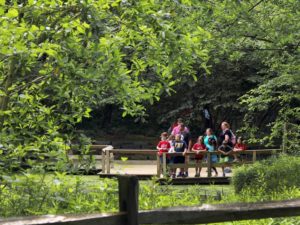
The Need for Community Conversations Around Nature and Climate Change
By Dr. Laura Guertin
The COVID-19 pandemic has been at the center of so many communications on television, in print, and online. Which topics are not getting the same time and attention as before the pandemic? It turns out that “nature” is one of the subjects disappearing from our media. Read more here!
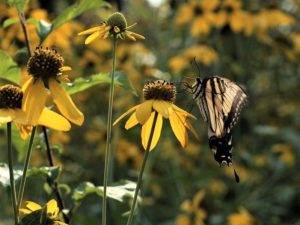
Pollen Records, Pollinators, and Climate Change
By Dr. Laura Guertin
An article was recently published by YaleEnvironment360, titled As Climate Warms, a Rearrangement of World’s Plant Life Looms (June 17, 2021). The article starts with two summary sentences: “Previous periods of rapid warming millions of years ago drastically altered plants and forests on Earth.” Read more here!
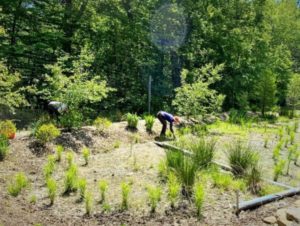
Restoring the Natural Rain Cycle
By Bess Trout
After the past few weeks, I think we’ve all got rain on the brain. Following a few days of misty, soggy weather, everything can start to feel saturated. While it’s nice not to need to worry about watering our vegetable gardens or new plantings, all this rain leaves us with a question. Read more here!
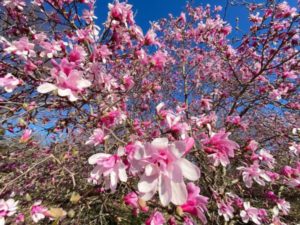
Spring Cues and a Changing Climate
By Dr. Laura Guertin and Bess Trout
For some people, when they hear the term “spring,” their minds fill with bright, colorful images of flowers in bloom. For others, it’s frogs singing, the smell of mulch, or fresh-cut grass. Still, others think of resuming outdoor activities put on hold by winter weather, like picnics, grilling, and going to baseball games. Read more here!
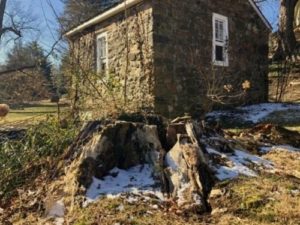
A Sticky Future for Maples Trees
By Dr. Laura Guertin
There are more and more headlines each year that confirm the data – it’s a sticky future for maple syrup. Read more here!
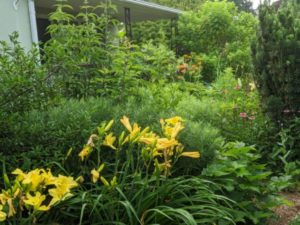
Planning and Planting a Pocket Meadow
By Bess Trout
There are few things more beautiful than the golden grasses and brilliant flowers of a meadow blazing against a clear September sky. Just the thought of the seed heads drifting in the breeze is enough to make you want to break out your flannel jacket and go on a hike. Read more here!
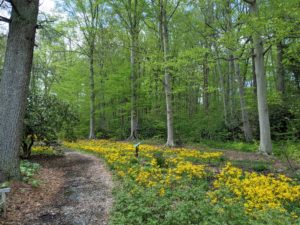
By Bess Trout
Gardening is a wonderful way to interact with the natural world. It’s an opportunity to get outdoors, feel the sun and the breeze, smell the soil, and be part of a world that we tend to lose touch within our day-to-day lives. But how do we garden in an environmentally supportive way? Read more here!
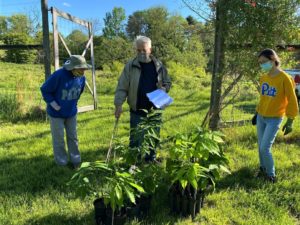
Citizen Science – Get Involved, Share, Contribute
By Julia Lo Ehrhardt
People have been studying natural events since the dawn of time. Through these observations, we learned how to navigate the oceans, when to plant crops, and when to pack up the camp and move on. Read more here!
Rain Barrel Basics
A Beginners Guide to Composting:
Pollinator Gardening:

